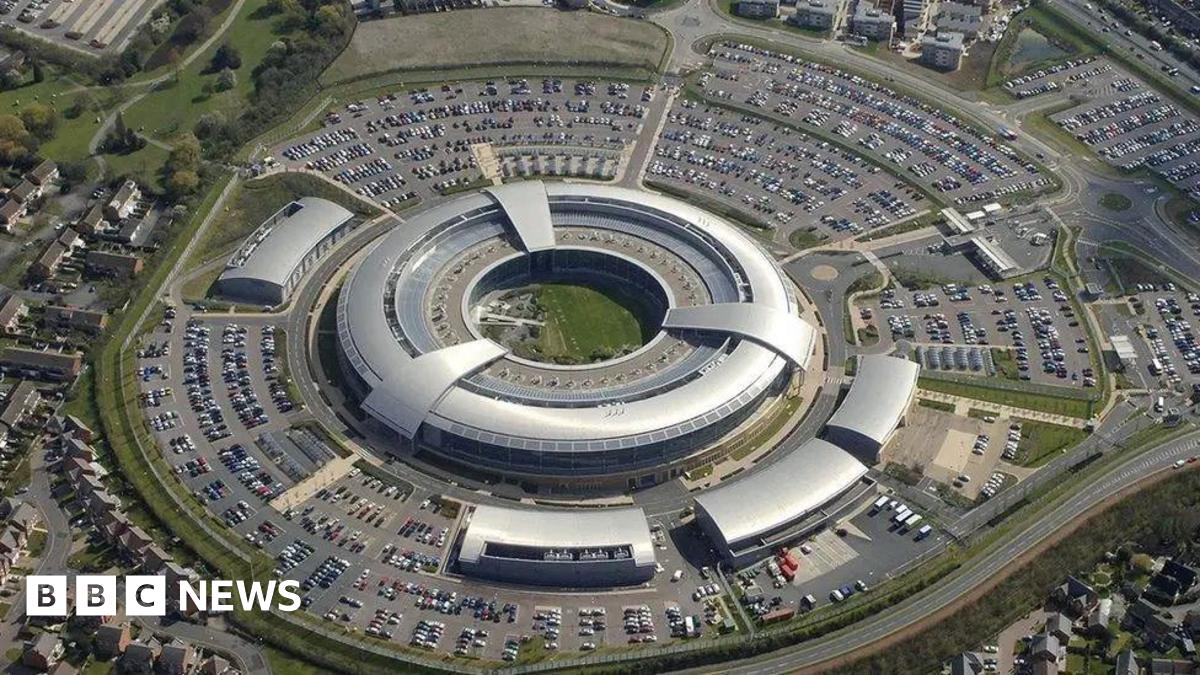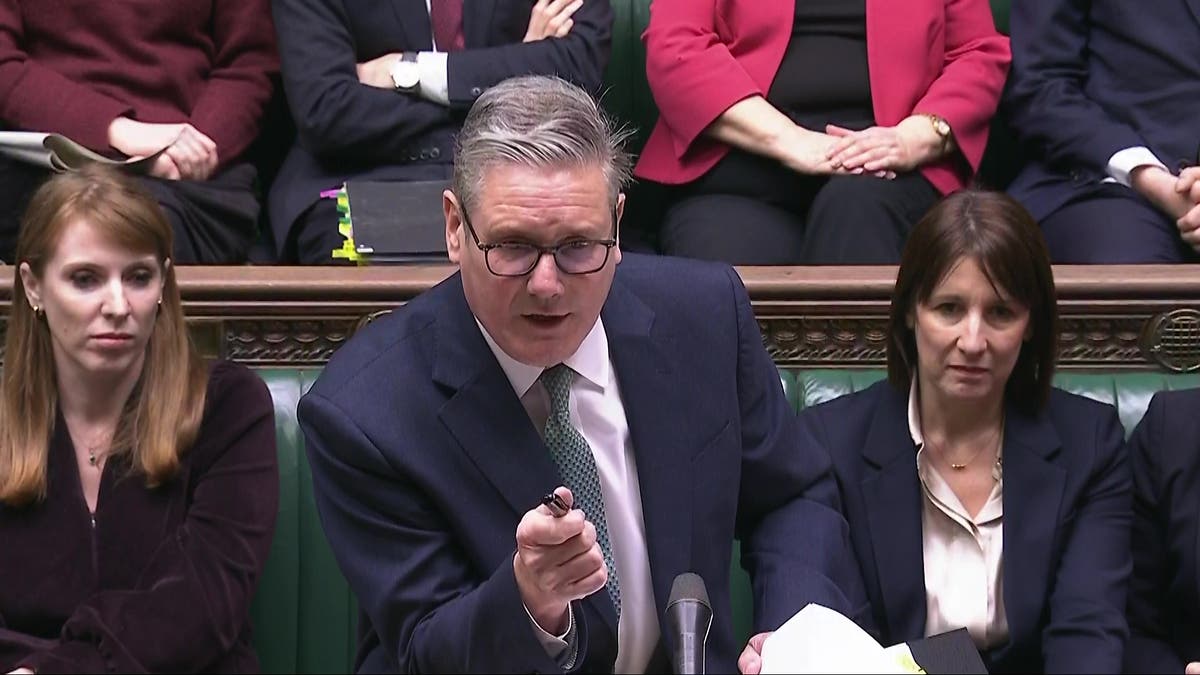World
Iran makes nuclear threat if Israel attacks while Gaza death toll nears 34,000 – live

Iran has issued a nuclear threat as it looks to ward off a future Israeli retaliation to its own major assault over the weekend.
Senior Iranian Revolutionary Guards commander Ahmad Haghtalab warned that Israel’s threats “make it possible to review our nuclear doctrine and deviate from our previous considerations”. He added that if Israel was to attack its nuclear centres, “we will surely reciprocate with advanced missiles against their own nuclear sites”.
It is the first time Iran has explicitly referenced its suspected nuclear weapons programme since it fired more than 300 missiles and drones at Israel in an unprecedented attack.
Experts have warned that Iran, since a nuclear pact with the US was abandoned by Donald Trump in 2018, is now capable of building a nuclear bomb in six months to a year.
It comes as the Hamas-run health ministry in Gaza said nearly 34,000 Palestinians have been killed since Israel launched its retaliatory attack to Hamas’ 7 October assault.
At least 33,970 Palestinians have been killed and 76,770 wounded in Israel‘s military offensive, they said, the majority of whom are women and children.
Mike Johnson is gambling everything — but a far-right rebellion is growing
Alexander Butler18 April 2024 17:00
US and UK issue new sanctions on Iran in response to Tehran’s weekend attack on Israel
The US and UK on Thursday imposed a new round of sanctions on Iran as concern grows that Tehran’s unprecedented attack on Israel could fuel a wider war in the Middle East.
Treasury’s Office of Foreign Assets Control targeted 16 people and two entities in Iran that produce engines that power the drones used in the 13 April attack on Israel. Additionally, the UK is targeting several Iranian military organizations, individuals and entities involved in Iran’s drone and ballistic missile industries.
Tom Watling18 April 2024 16:00
US announces new sanctions on Iran after missile and drone strike on Israel
The United States has announced new sanctions on Iran targeting its unarmed aerial vehicle production after its missile and drone strike on Israel last weekend.
The US Treasury Department statement said the measures targeted 16 individuals and two entities enabling Iran’s UAV production, including engine types that power Iran’s Shahed variant UAVs, which were used in the 13 April attack.
The Treasury said it was also designating five companies in multiple jurisdictions providing component materials for steel production to Iran’s Khuzestan Steel Company (KSC), one of Iran’s largest steel producers, or purchasing finished steel products.
Also targeted, the statement said, were three subsidiaries of Iranian automaker Bahman Group, which it said had materially supported Iran’s Islamic Revolutionary Guard Corps.
The statement said that concurrent with the Treasury action, Britain was imposing sanctions targeting several Iranian military organizations, individuals and entities involved in Iran’s UAV and ballistic missile industries.
The US statement came after finance ministers and central bank governors of the Group of Seven industrial democracies said after a meeting in Wednesday that they would “ensure close coordination of any future measure to diminish Iran’s ability to acquire, produce, or transfer weapons to support destabilizing regional activities”.
European Union leaders also decided on Wednesday to step up sanctions against Iran after Tehran’s missile and drone attack on Israel left world powers scrambling to prevent a wider conflict in the Middle East
Tehran says it launched the 13 April attack in retaliation for Israel’s suspected 1 April strike on the Iranian consulate in Damascus. Israel has said it will retaliate, while a senior Iranian Revolutionary Guards commander said on Thursday Iran could review its “nuclear doctrine” following Israeli threats.
Tom Watling18 April 2024 15:30
For the West it’s a nuclear nightmare, but the Israel-Iran conflict is helping their leaders cling to power
Jack Straw was the first foreign secretary to visit Iran after the 1979 revolution and is used to negotiating with its leaders – even, on one occasion, from a train loo. Here, he explains why Netanyahu and Khamenei are throwing each other a lifeline to stay in power, and warns we could all pay a terrible price…
How the Israel-Iran conflict is helping their leaders cling to power
Jack Straw was the first foreign secretary to visit Iran after the 1979 revolution and is used to negotiating with its leaders – even, on one occasion, from a train loo. Here, he explains why Netanyahu and Khamenei are throwing each other a lifeline to stay in power, and warns we could all pay a terrible price…
Tom Watling18 April 2024 15:00
Update: Nearly 40,000 Palestinians killed since Hamas attack against Israel
At least 33,970 Palestinians have been killed and 76,770 wounded in Israel‘s military offensive on Gaza since 7 October, the Gaza health ministry said in a statement on Thursday.
Tom Watling18 April 2024 14:30
Iranian commander says Tehran could review ‘nuclear doctrine’ amid Israeli threats
Iran could review its “nuclear doctrine” following Israeli threats, a senior Iranian Revolutionary Guards commander has said, raising concerns about Tehran’s nuclear programme which it has always said was strictly for peaceful purposes.
Israel has said it will retaliate against Iran’s 13 April missile and drone attack, which Tehran says was carried out in response to a suspected Israeli strike on its embassy compound in Damascus earlier this month.
“The threats of the Zionist regime (Israel) against Iran’s nuclear facilities make it possible to review our nuclear doctrine and deviate from our previous considerations,” Ahmad Haghtalab, the Guards commander in charge of nuclear security, was quoted as saying by the semi-official Tasnim news agency.
“If [Israel] wants to take action against our nuclear centres and facilities, we will surely and categorically reciprocate with advanced missiles against their own nuclear sites.”
Indirect talks between Tehran and Washington to revive Iran’s 2015 nuclear pact has stalled since 2022. The accord, aimed at keeping Iran from developing a nuclear weapon, required Tehran to accept restrictions on its nuclear program and more extensive United Nations’ inspections, in exchange for an end to United Nations, European Union and US sanctions.
The deal, which had capped Iran’s uranium enrichment at 3.67 per cent, was abandoned in 2018 by then-US President Donald Trump, who said it was too generous to Tehran.
Rafael Grossi, the head of the UN nuclear watchdog, said in February that Iran continued to enrich uranium at rates up to 60 per cent purity, which is far beyond the needs for commercial nuclear use.
Tom Watling18 April 2024 14:00
UN agency helping Palestinians in Gaza seeks support against Israel’s demands for its dissolution
Tom Watling18 April 2024 13:30
What sanctions could Iran face after attack on Israel?
While Israel’s war cabinet discusses its military response, its allies have heeded calls from Israeli foreign minister Israel Katz to lead a “diplomatic attack”.
Tom Watling18 April 2024 13:00
Palestine FA demands Israel be kicked out of Fifa
The Palestine Football Association (PFA) has called for a Fifa sanction and to exclude the Israel Football Association (IFA) from Fifa on the grounds of human rights and humanitarian law violations committed in the Gaza Strip.
The submission to the international football governing body concerns a number of violations of both international law and Fifa regulations.
Tom Watling18 April 2024 12:30
European Union official urges G7 to step up air defense for Ukraine and expand Iran sanctions
The European Union’s top diplomat urged Group of Seven foreign ministers on Thursday to take quick, concrete steps to provide more air defense systems to Ukraine, warning that continued delays could tilt the war in Moscow’s favor.
Without more Patriot air defense missile systems to guard against incoming Russian strikes, “the electricity system of Ukraine will be destroyed. And no country can fight without having electricity at home, in the factories, in the front line,” EU foreign policy chief Josep Borrell warned.
Tom Watling18 April 2024 12:00









